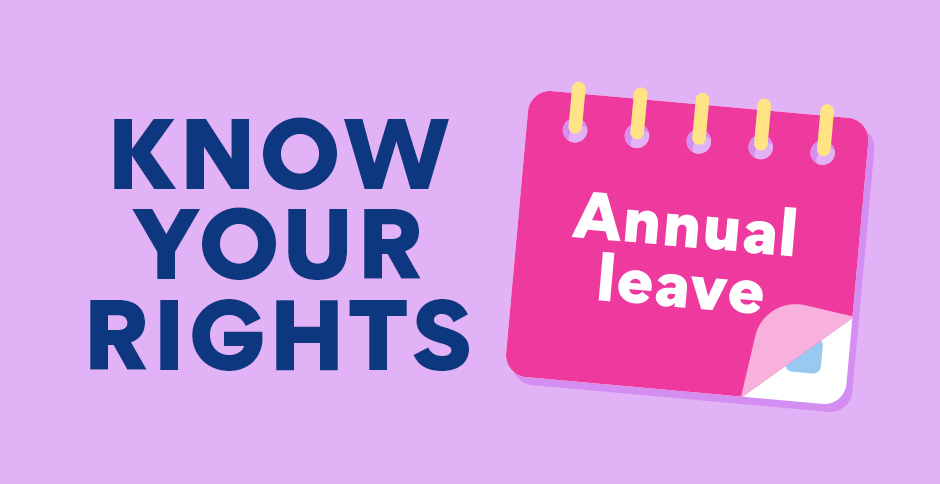With COVID-19 restrictions in place and many non-essential businesses impacted, many of us are faced with reduced hours, working from home or stopping work altogether.
During this time of unprecedented change, it can be confusing to know what to expect and what your rights are.
Here’s the latest information on how COVID-19 may impact your work and what your rights are as an employee.
How COVID-19 could affect your work
If your job has been affected by the restrictions put in place by the government, the good news is that a wage subsidy and leave support have been implemented so that employers impacted by COVID-19 can pay their staff. You can find out more about these schemes via the government’s COVID-19 website.
If you want to minimise your financial loss during this time, you can talk to your employer about accessing long service leave or annual leave. Your employer can’t make you take annual leave unless they have discussed it with you first and given you 14 days’ notice before the annual leave is to be taken.
If your employer has not been forced to shut during COVID-19 but business is slow, they can suggest reducing the number of hours that you work, but it must be agreed to in writing.
What does it mean for your contract?
If you can perform most of your usual duties from home, your employer cannot terminate your contract during COVID-19.
But, if your employer can’t be sure when they can reopen for business they may be able to modify your contract. This does not automatically mean your contract will be terminated as it depends on the specific instances of the agreement, and the practical requirements of your job.
In many cases, changes to your contract during the COVID-19 pandemic would be temporary until government restrictions are lifted and normal business resumes.
If your work or job prospects have been impacted by COVID-19, you could be eligible for government financial support. Here are the key resources to access if your role has been impacted.
The above information was last updated 07.05.2020
Information provided in this article is general only and it does not constitute legal advice and should not be relied upon as such. SEEK provides no warranty as to its accuracy, reliability or completeness. Before taking any course of action related to this article you should make your own inquiries and seek independent advice (including the appropriate legal advice) on whether it is suitable for your circumstances.



